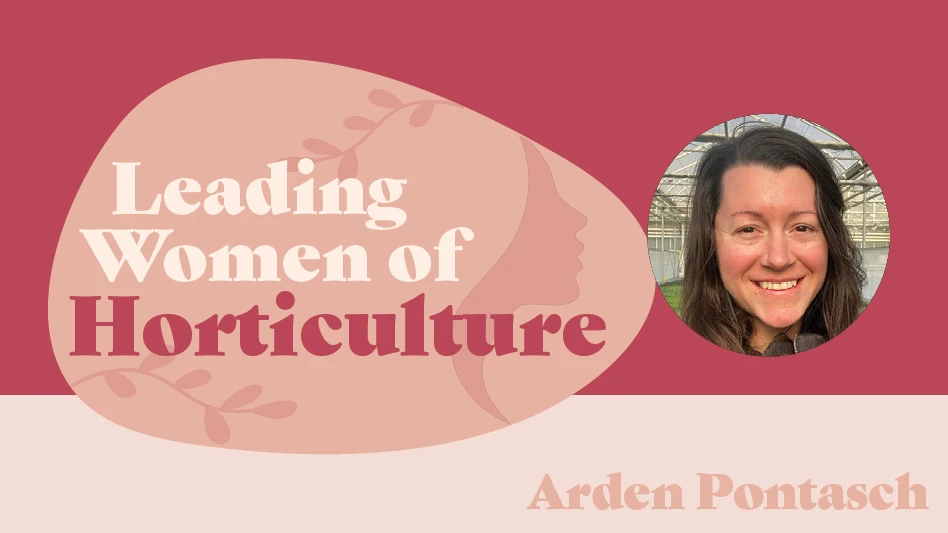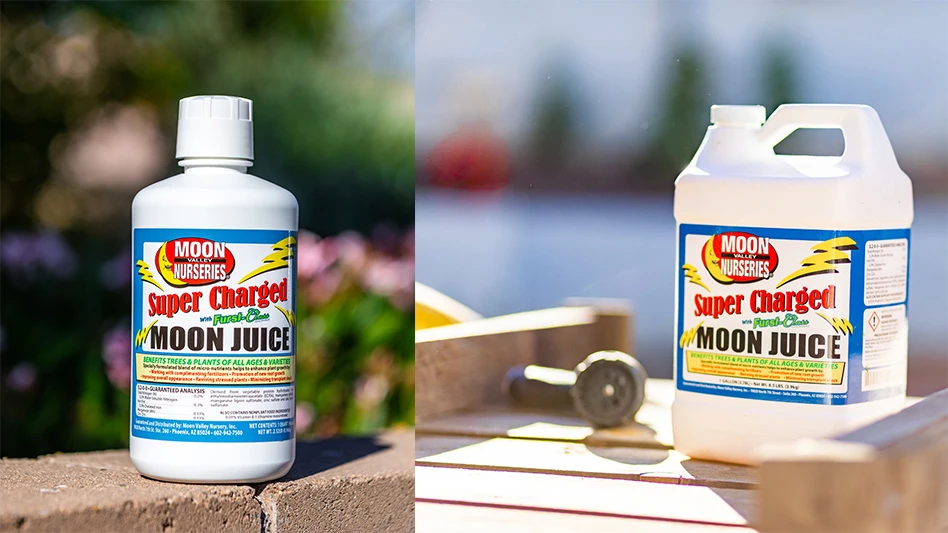
It’s time once again to gather in Columbus, Ohio, and learn ways to sharpen your growing and management skills at Cultivate’22. Our preview guide identifies some of the nursery-centric educational seminars that you may find valuable for you and your staff. For the full list of educational sessions, go to www.cultivateevent.org.
Show schedule:
- Sat., July 16: Education sessions open 8 a.m. to 5 p.m., trade show closed.
- Sun., July 17: Education sessions open 8 a.m. to 5 p.m., trade show floor open 9:30 a.m. to 5 p.m.
- Mon., July 18: Education sessions open 8 a.m. to 5 p.m., trade show floor open 9 a.m. to 5 p.m.
- Tue., July 19: Education sessions open 8 a.m. to 12 p.m., trade show floor open 9 a.m. to 2 p.m.

SATURDAY, JULY 16
Data-Driven Decisions through More Profitable Sustainability
As the pace of developments in sustainability increases, all growers are faced with topics ranging from reductions in crop protection agent usage, to generating insights on what your carbon footprint is. The good news is that you have a large range of data available that can be recorded which will help you make data-driven decisions. This data will help you make fact-based decisions about your investments that will move you towards more sustainable production processes and will transfer into more profitable sustainability. This session will walk you through the worldwide developments in sustainability and show you how to improve your business by making data-driven decisions.
John Thomas and Arthij van der Veer, MPSSaturday, July 16 • 10:30 AM - 11:30 AM • Location: A120
Addressing the Nursery Labor Shortage with Automation and Other Employee Retention Strategies
This session will look at strategies U.S. nurseries are using to address the labor shortage, from retaining current employees and attracting new ones, to making do with a smaller staff through automation. We will cover current nursery automation trends and practical factors to consider when purchasing automation. Together, we’ll examine some of the most affordable first steps, ways to ease adoption of automation and improve employee buy-in, and common barriers to adopting automation. Current levels of automation compared to 15 years ago and benefits beyond labor savings that growers are experiencing through automation will also be discussed.
Amy Fulcher, University of Tennessee - KnoxvilleSaturday, July 16 • 2:30 PM - 3:30 PM • Location: A120
H-2A & H-2B: What Your Business Needs to Know
As the labor landscape continues to be difficult, more and more businesses are turning to both H-2A and H-2B simultaneously to solve their shortages—ensure your operation is on the right track. This session will cover the scope of each program, including similarities and key differences between the H-2A and H-2B visas. It will also cover each program’s requirements, barriers to entry, and best practices for employers, as well as “crossover” potential.
Megan Wright, másLaborSaturday, July 16 • 4:00 PM - 5:00 PM • Location: A120
SUNDAY, JULY 17
Keys and Cautions to Managing Business Growth
Some in our industry have been managing flat to 3% growth for years and now have had two years of double-digit growth – it’s euphoric and scary at the same time. Willoway Nurseries will share some “Keys and Cautions” to helping business owners navigate this opportunity of growth. Willoway has implemented a strategic planning model to ensure all aspects of the company (operations, sales, administration, etc.) run smoothly through the pandemic. Learn more about their model that has been key in the recent growth economy, including financial transparency, established measurables, and key performance indicators (and how to hold your staff accountable for hitting them), as well as employee engagement, culture, reward systems, training, and more.
Emily Showalter, Willoway Nurseries Sunday,July 17 • 9:30 AM - 10:30 AM • Location: C160A
Boxwood Blight Insight Group: Sanitation and Nursery Practices
Observations about boxwood blight in the nursery industry
Over the last 3 years, we have surveyed over 7 million boxwood plants at 19 nurseries for boxwood blight. A number of trends have emerged that can help us better understand this disease. This session will cover how various production practices (cultivar choice, plant spacing, etc.) influence the frequency and severity of boxwood blight in propagation, container, and field nursery systems.
Effect of sanitizers on Calonectria pseudonaviculata causal agent of boxwood blight, Fulya Baysal-Gurel, Tennessee State University
Calonectria pseudonaviculata causing the infamous ‘boxwood blight’ is a constant threat to the boxwood production and cut boxwood greenery market. This pathogen causes significant economic loss to all parties (growers, retailer, and customers) in the horticultural chain. This session will provide information on the efficacy of different classes of sanitizers for managing dispersion and infection of C. pseudonaviculata on boxwood during production (preharvest) and boxwood cuttings (postharvest).
July 17 • 9:30 AM - 10:30 AM Location: tHRIve Knowledge Center
Don’t Go Bust on the Boom
The market has been good, but good times will not last forever. Join this session for suggested business strategies companies should consider to optimize the growth in our industry without over-extending resources if the market declines.
Jeff Pettit, Everde Growers Sunday, July 1711:00 AM - 12:00 PM • Location: C160A See our Q&A with Jeff on page 40.
Growing Green Industry Profits from an Emerging Market of Plantspeople
Recently, the horticulture world has seen an influx of new plantspeople entering the marketplace. These new consumers are providing new challenges and opportunities for our industry. This session will provide insight and tools, developed from consumer research, to equip horticulture industry stakeholders to better engage emerging audiences and convert them into lifelong buyers.
Julie Campbell, University of Georgia Sunday, July 17 • 2:30 PM - 3:30 PMLocation: tHRIve Knowledge Center See our Q&A with Julie on page 42.
MONDAY, JULY 18
Natives: Help Meet the Demand
In this session, learn more about the challenges in propagating, growing, and selling native plants. Dive into what is driving demand and how the perennial industry can be prepared to supply these species.
Elliot Duemler, Taylor Creek Restoration Nurseries Monday,July 18 • 11:00 AM - 12:00 PM • Location: A223
Moving Toward Roses Resistant to Rose Rosette Disease
The rose rosette emaravirus that causes RRD was first described in 2011. Since then, we have learned a tremendous amount about the biology and epidemiology of the virus and mite vector, have developed accurate diagnostics, and have screened hundreds of roses for their susceptibility to RRD in the field. Much progress has been made. Nevertheless, the current management protocols, although effective, are expensive to apply. There is a range of susceptibility/resistance to RRD among roses and recent work has described the genetic basis of this susceptibility/resistance. Analysis of the DNA sequence data is leading to molecular approaches of following these important genes which will accelerate the development of RRD resistant rose cultivars.
David Byrne, Texas A&M University Monday, July 18 •1:30 PM - 2:30 PM • Location: tHRIve Knowledge Center

Substrates, Water, and Fertilizer: New methods for improving resource efficiency in container production
Production costs continue to rise, and we must work towards developing more efficient resource management. This talk with highlight some new research in soilless substrate science that focuses on developing more efficient production practices and share some tips for implementation.
Jeb Fields, LSU AgCenter Monday, July 18 • 3:00 PM - 4:00 PM • Location: A120TUESDAY, JULY 19
Exotic Ambrosia Beetles as Wood-Boring Insect Pests in Nurseries and Orchards
Ambrosia beetles are destructive insect pests of tree crops. These wood-boring insects are challenging pests in ornamental nurseries and are emerging as pests of fruit and nut trees. Two exotic species are especially problematic in these commodities: granulate ambrosia beetle Xylosandrus crassiusculus and black stem borer Xylosandrus germanus. Ambrosia beetles can render trees unmarketable, decrease integrity of surviving trees, and make trees vulnerable to infection. In this session, research efforts will be summarized that address ambrosia beetle biology, behavior, ecology, monitoring, and management.
Christopher Ranger, USDA Tuesday, July 19 • 8:00 AM - 9:00 AM •Location: A120Growing In The Industry: A Swap Shop For New Grower Professionals
What does it take to become an established, successful grower? Should you have a mentor? What does it mean to be a professional in our industry? Join us to discuss these crucial skills as we hear from a panel of new and experienced greenhouse and nursery growers. At the end of session, you will have the opportunity to participate in round table discussions for one-on-one conversations with experienced growers who have been where you are.
Matt Foertmeyer, Annie Glaser, Duane Huss, Taylor Phelps Tuesday, July 19 • 9:30 AM - 11:00 AM • Location: A110Intellectual Property Rights for Your New Plant Cultivar
There are currently three options that exist in the U.S. for protecting a novel plant variety: Plant Patent, “Varietal” Utility Patent, and Plant Variety Protection. Which is most appropriate for a particular variety depends upon numerous factors, including, the timing of the first sale, anticipated value of the variety, and the competitive activities you are trying to prevent. It is important for a breeder to consider which type(s) of protection should be secured for a particular variety. This presentation will discuss factors and decision points and will further analyze how multiple types of IP protection can be combined to further secure the variety and, in certain cases, to overcome challenges that are imposed by the doctrine of patent exhaustion.
Stephany Small, Panitch Schwarze Belisario & Nadel LLP Tuesday, July 19 • 11:00 AM - 12:00 PM • Location: A120 See our Q&A with Stephany on page 41.
 | The Garden Center Conference & Expo, presented by Garden Center magazine, is the leading event where garden retailers come together to learn from each other, get inspired and move the industry forward. Be sure to register by April 17 to get the lowest rates for the 2025 show in Kansas City, Missouri, Aug. 5-7.
|

Explore the June 2022 Issue
Check out more from this issue and find your next story to read.
Latest from Nursery Management
- Society of American Florists accepting entries for 2025 Marketer of the Year Contest
- Sustainabloom launches Wholesale Nickel Program to support floriculture sustainability
- American Horticultural Society welcomes five new board members
- Get to know Christopher Brown Jr. of Lancaster Farms
- American Floral Endowment establishes Demaree Family Floriculture Advancement Fund
- The Growth Industry Episode 3: Across the Pond with Neville Stein
- The Growth Industry Episode 2: Emily Showalter on how Willoway Nurseries transformed its business
- March 2025 issue recap







